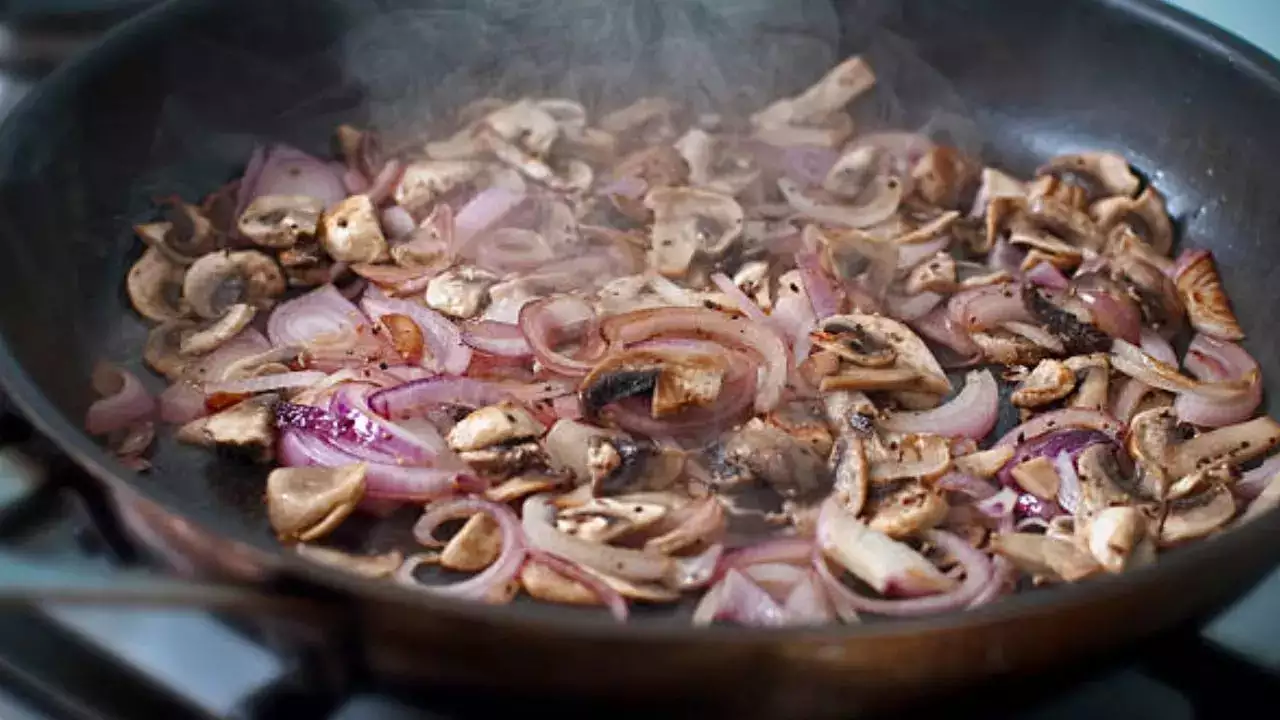Think Garlic and Onions Are Always Healthy? Cooking Them This Way May Harm You
Dec 30, 2024
News

Think Garlic and Onions Are Always Healthy? Cooking Them This Way May Harm You (Image Credits: iStock)
A recent study by Japanese researchers has revealed that cooking garlic and onions at high temperatures in vegetable oil may produce trans-fatty acids (TFAs), which are harmful to heart health. TFAs are fats that accumulate along artery walls, restrict blood flow, and significantly increase the risk of heart attacks.
While TFAs are commonly associated with processed foods, the study highlights that they can also form during everyday cooking practices. When unsaturated fatty acids (UFAs), typically deemed healthy, are heated above 150 degrees Celsius, they can undergo a process known as trans-isomerisation. This molecular transformation converts UFAs into TFAs, making them potentially dangerous.
The Role of Sulphur Compounds in TFA Formation
Researchers from Meijo University delved into how certain sulphur-containing compounds in vegetables—such as garlic, onions, leeks, and scallions—contribute to the formation of TFAs. The study involved testing the effects of isothiocyanates and polysulfides (key sulphur compounds) on triacylglycerols (TAGs), which are major components of vegetable oils.
Simulating real cooking conditions, the team tested vegetables like garlic, onion, leek, cabbage, broccoli sprouts, and horseradish in various oils, including soybean and olive oils. They found that sulphur compounds significantly promoted the heat-induced trans-isomerisation of UFAs in vegetable oils, especially when cooking temperatures exceeded 140 degrees Celsius.
Antioxidants Offer Limited Protection
The researchers also evaluated the impact of antioxidants like alpha-tocopherol on reducing UFA isomerisation. While antioxidants reduced the isomerisation triggered by isothiocyanates, they were less effective against the isomerisation caused by polysulfides. This indicates that cooking polysulfide-rich vegetables such as garlic and onions at high temperatures is particularly problematic.
According to the study, normal cooking conditions release minimal TFAs, but excessive heat during cooking with sulphur-rich ingredients may increase the risk of TFA intake.
Why It Matters
Trans-fatty acids are a major global health concern. The World Health Organization (WHO) attributes over 278,000 deaths annually to TFA consumption. To protect heart health, WHO recommends limiting TFA intake to less than 1 per cent of daily energy consumption.
Tips to Reduce TFA Formation While Cooking
To minimize the risk of TFA formation when cooking garlic, onions, and other sulphur-rich vegetables, consider the following tips:
- Use Lower Cooking Temperatures: Avoid heating oils above 140 degrees Celsius. Opt for slow cooking or steaming methods to preserve nutrients and reduce harmful by-products.
- Switch to Stable Oils: Use oils with high heat stability, such as avocado or coconut oil, which are less prone to trans-isomerisation compared to vegetable oils like soybean or sunflower oil.
- Add Antioxidants: Incorporate antioxidant-rich ingredients like vitamin E (found in nuts and seeds) or herbs such as rosemary to counteract the effects of isothiocyanates.
- Avoid Reusing Oil: Cooking oils degrade after repeated heating, increasing the likelihood of TFA formation. Always use fresh oil for frying or sautéing.
- Opt for Boiling or Steaming: Prepare garlic and onions by boiling or steaming instead of frying to avoid exposing oils to high temperatures.
- Use a Cooking Spray: Limit the amount of oil used by opting for cooking sprays, which reduce oil exposure to heat while still adding flavour.
Get Latest News Live on Times Now along with Breaking News and Top Headlines from Health and around the world.



